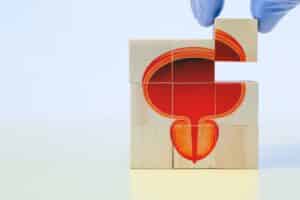
At Greater Hartford Urology Group, our team of urologists understands the anxiety you might feel and we are here to guide you every step of the way. Here’s a detailed overview of what to expect before, during, and after the procedure:
Preparing for Your Biopsy
Your urologist will provide detailed instructions to prepare for the procedure. Common preparation steps include:
- Medication Adjustments: You may need to temporarily stop taking blood-thinning medications to reduce the risk of bleeding.
- Antibiotics: To prevent infection, you’ll likely be prescribed antibiotics to take before and after the procedure.
- Dietary Restrictions: You may be asked to avoid eating or drinking for a few hours before the biopsy.
- Enema: In some cases, your doctor may recommend using an enema before the biopsy to clear your rectum for better access.
During the Procedure
The most common type of prostate biopsy is the transrectal ultrasound-guided biopsy (TRUS), though other methods like transperineal biopsies may also be used. Here’s what typically happens:
- Positioning: You’ll lie on your side or back.
- Numbing the Area: A local anesthetic will be applied to minimize discomfort.
- Ultrasound Imaging: A small probe inserted into the rectum provides real-time images of the prostate.
- Sample Collection: Your doctor will take small tissue samples using a thin needle. This process usually takes 10-15 minutes.
While you might feel some pressure or mild discomfort, the procedure is generally well-tolerated.
Recovery and Follow-Up
After the biopsy, it’s normal to experience minor side effects, including:
- Mild bleeding from the rectum, urine, or semen.
- Discomfort or soreness in the biopsy area.
These symptoms typically resolve within a few days. You’ll also receive instructions on managing pain or preventing infection, such as completing your prescribed antibiotics.
Your doctor will contact you once the results are available, typically within a week. If cancer cells are detected, your urologist will discuss the next steps, which may include further testing or starting a treatment plan.
Trust Greater Hartford Urology Group
At Greater Hartford Urology Group, we prioritize patient comfort and clear communication. Our experienced men’s health doctors can help you through the process, beginning with a prostate cancer screening. To schedule an appointment with specialists you can trust, please contact us at (860) 522-2251 today.


